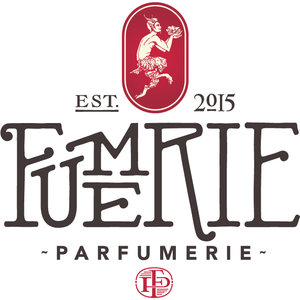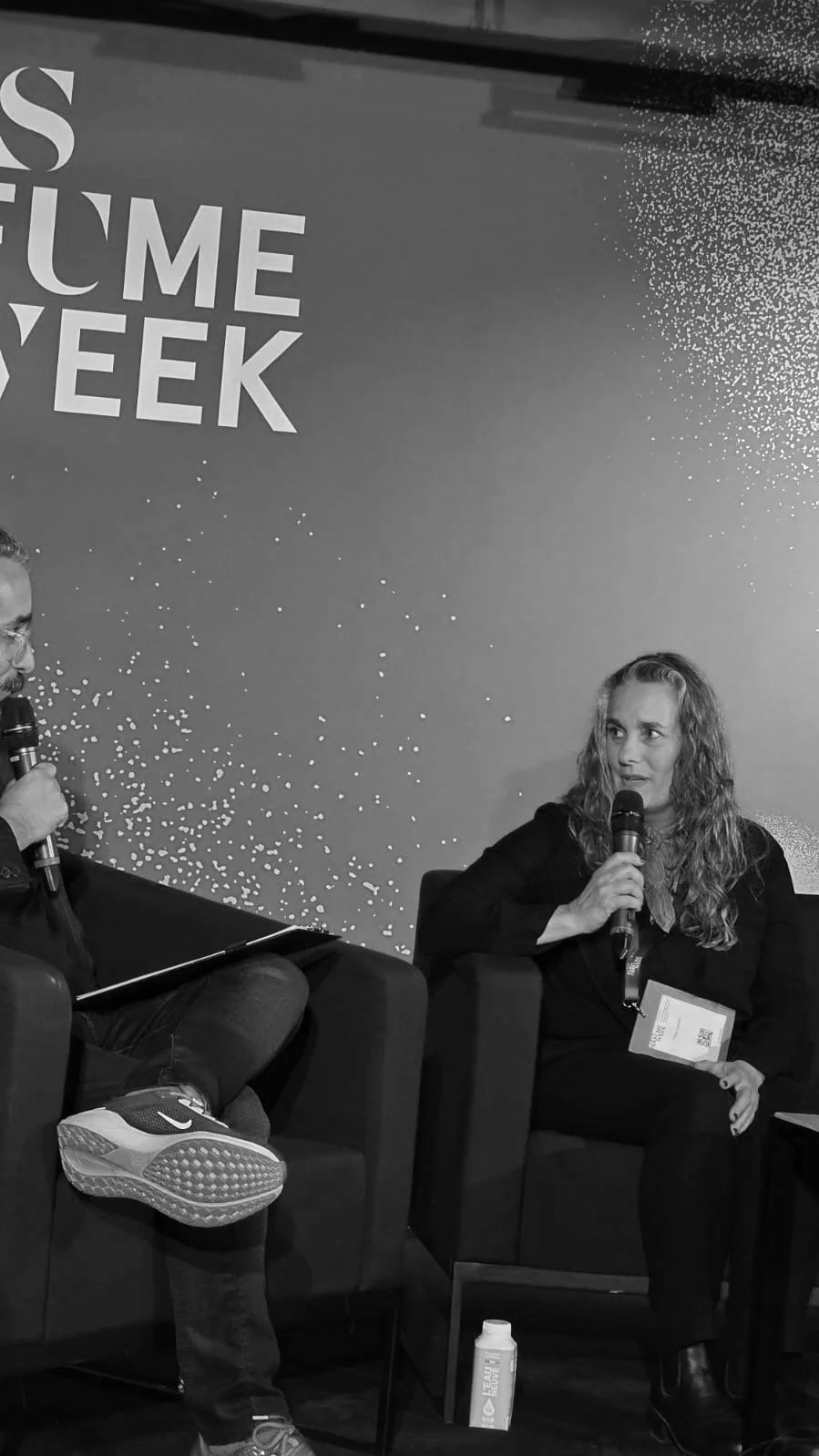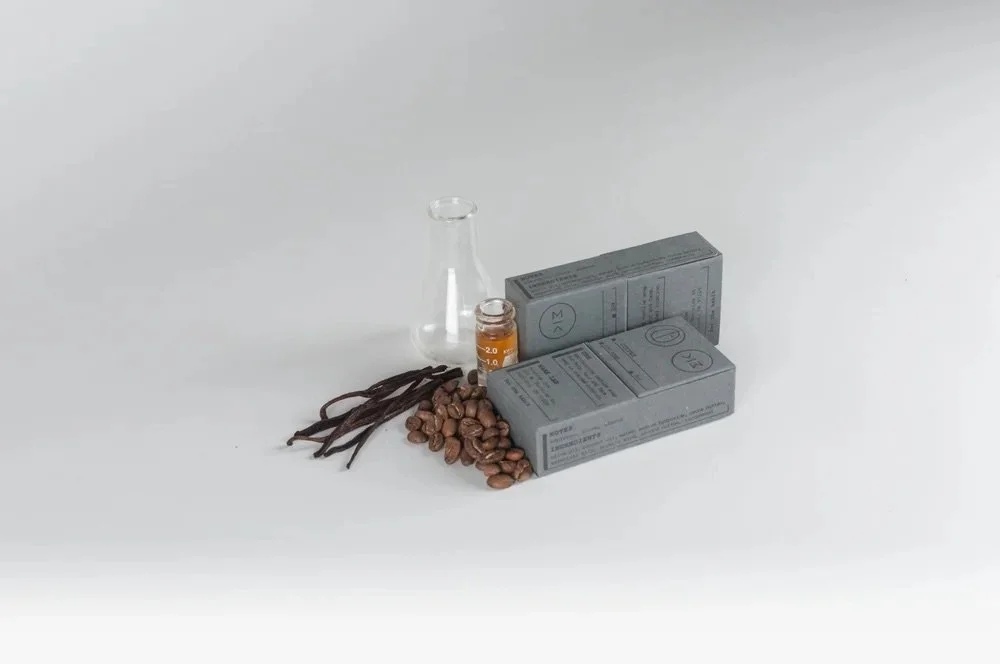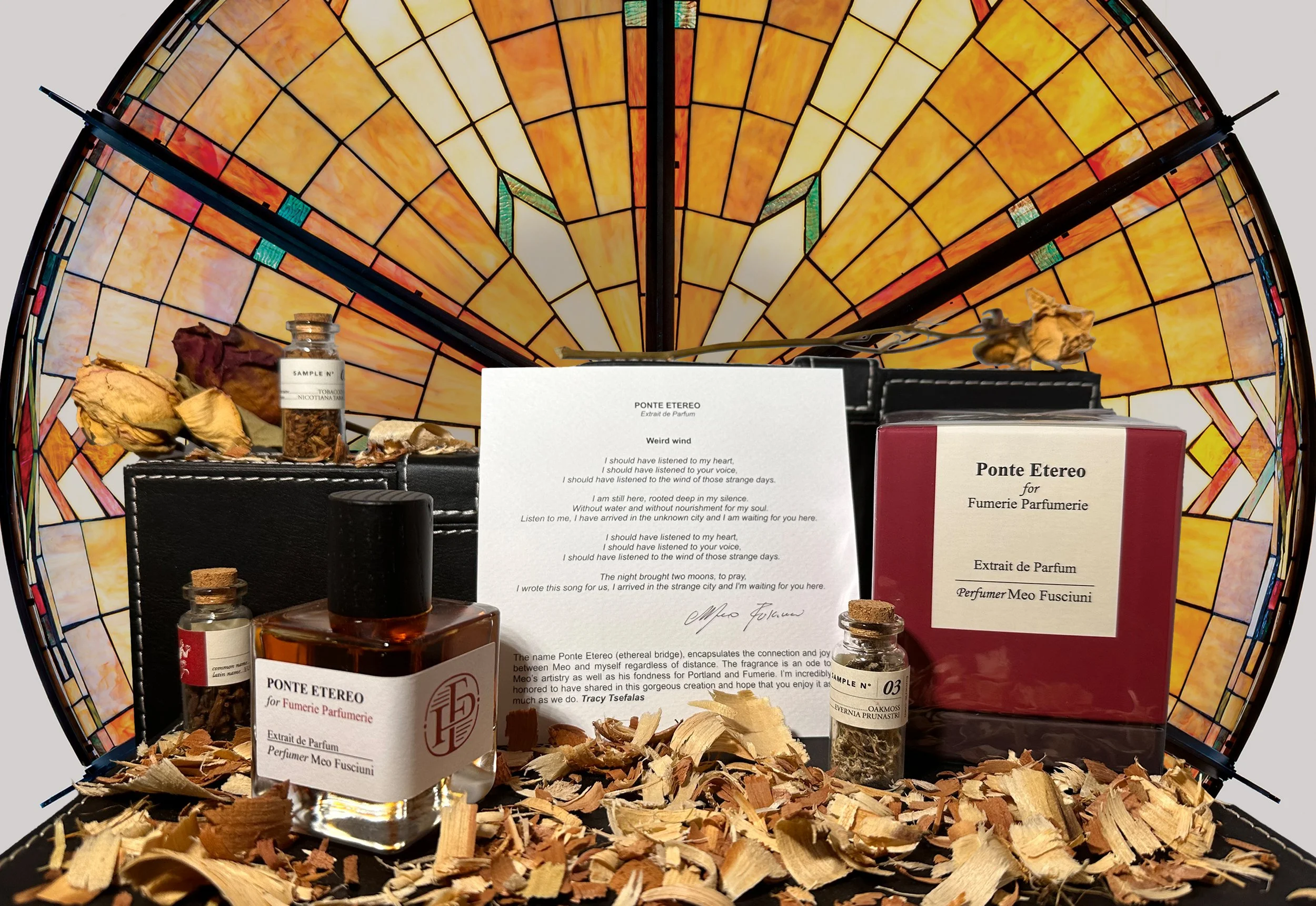I first wandered into Fumerie Parfumerie six years ago, nearly to the day, to try one fragrance (oh, and I swore it would be the only fragrance I would test out during my first visit) that I had found while googling “unisex” fragrances without having ever learned that such a thing even existed. That fragrance, Slow Explosions by Imaginary Authors, had become a specific point of curiosity for me as my online searching had led me to learn that Imaginary Authors is a Portland-based brand that had a literary theme (in my previous life in Tucson, I had done what I do here, but for books at a local bookstore) and made exclusively ungendered fragrances. In simplest terms, the fragrance theoretically solved all of my perceived issues with perfumes- it combined two of my favorite smells (being leather and rose) and, in theory, would not make me smell like I am deeply insecure or afraid of therapy. It turns out, my aversion to Fougères was more a byproduct of how they were presented to me rather than a reflection of whether or not I even liked them, and that the associations I had made with them reflecting a stereotypical expression of masculinity were a result of social conditioning that had been reinforced by the advent of Axe. As I quickly came to find out, the world of fragrance was and is much wider than I had been led to believe by all of the less-than-desirable shopping and smelling experiences I had before visiting Fumerie. In fact, the main reason I made a point to physically visit the shop was because I tried watching my first-ever fragrance influencer video and felt deep in my bones that I was being sold something, a sensation I am keenly aware of and generally averse to. I assumed my visit to Fumerie would be the same, and that as soon as I expressed interest in a specific fragrance, I would be accosted with marketing blurbs, affirmations of its greatness, how it is perfect for me specifically, or sprayed without my permission. The actual experience I had, one that almost every person who has visited Fumerie in person has experienced a version of, had me leaving with samples and a lot to think about, and resulted in my watching three hours of BBC documentaries on perfumery that Tracy had recommended to me. Two weeks later, I attended my first event at Fumerie, focused on Moth & Rabbit, and had my mind blown to the point I knew fragrance was going to be my new favorite art form. Many books, failed (and successful) batches of fragrance, and visits to other fragrance shops later, I remain completely sure that I might never have gotten so deeply into my favorite art medium had it not been for the confluence of accessible approaches offered by Imaginary Authors and Fumerie Parfumerie.
My appreciation of the medium of fragrance deepened quickly as I was exposed to more Portland locals working in the space by way of visits to Fumerie, in reading Nose Dive by Catherine Haley Espstein (which is the closest thing to a training manual we use here at Fumerie), who is also a scent leader of Portland, and experiencing cult-favorite local brand Slumberhouse. Catherine is an eclectic and prolific artist in many mediums, including scent, but accessibility is always at the core of her work and is articulated beautifully in her book. Her website and project Odorbet, which encourages new words and ways of speaking about the experience of smelling and the concept of scent, is also rooted in accessibility and addressing the blind spots in language that specifically limit our way of articulating scent experiences to each other. Slumberhouse, on the other hand, has become a lot less accessible than it was when I first tried them at Fumerie because of their deeply committed fan base and extremely limited quantity “drops” that we have had to get very creative with in terms of how we release them as their popularity and public interest continue to grow. Their perfumer and brand owner, Josh Lobb, has intentionally become quite hard to find on the internet, in part because of the lengths folks have gone to track him and his work down. Regardless of scarcity, Josh has still kept his retail price reasonable and accessible (though second-hand prices cannot be described this way in the slightest), even if procuring them takes a bit more effort and patience than it used to. Just between these mentioned fragrance artists, one can already see that the Portland spirit has made a severe impact on the world of indie perfume, and I would say the two Joshes listed here have inspired a great many brands and makers to explore similar styles and concepts and have an outsized impact on American makers, especially. But, even with this wealth of Portland artisan and community influences taken into account, there are still more that bear mentioning.
I very much believe that the only spaces I have been in that could have offered the type of open-minded, honest, and accessible approach to a brick-and-mortar perfume shopping experience that may have resulted in finding my passion would also be found in Portland, being OLO and Maak Lab. I almost used the word “coincidentally” in that last sentence, but I realized it would be inaccurate. In fact, the central theme of this article revealed itself to me in this choice: Portland has an artisan culture that celebrates, centers, and insists on accessibility without compromising quality. Many folks who live here already realize this by way of the plethora of delicious food & beverages, unique clothing & jewelry, book stores, and so on. In terms of online options, no brand eclipses Imaginary Authors in terms of outward and obvious accessibility, from price point to concept, the entirety of their brand can be viewed as a true ambassador of Portland’s artisan culture. Their commitment to these concepts and their deserved visibility are exemplified and explained by so many of their actions; from publicly stating that they are committed to keeping their prices set in the face of the adversities thrust upon this industry by way of tariffs to the time I was visiting Fumerie and Josh came by to drop off some new soap (Bouquet of Miracles) and kindly gifted one to me when I revealed that his brand was the reason I discovered niche perfumery, and many examples in between, they are wonderfully representative of the way Portland approaches artistry and accessibility. With that said, for folks like myself, the internet simply is not a place where passion can truly be derived and is not an acceptable replacement for in-person community and exploration. I remain incredibly grateful, to this day, that Fumerie and Imaginary Authors found each other and that I was fortunate enough to stumble upon the perfect starting point for my fragrance journey by way of their mutual efforts. The more involved in the Portland fragrance community I become, and the more I give consultations at our bar, the more I hear similar origin stories about Fumerie, as well as OLO and Maak Lab, from the most committed, earnest, and passionate fragrance enthusiasts I have met. It seems I was not alone in my need for honest, in-person, fragrance exploration to open my mind up to the concept, culture, and breadth of fragrant art.
Starting in 2009, OLO’s owner and perfumer Heather Sielaff has been quietly building a community of committed return customers, including many touring musicians, and opening folks’ minds to more novel concepts of fragrance in a personable and approachable way. One of the defining characteristics of OLO’s ethos is illustrated by their slogan, “That place is never open,” which instantly conveys a sense of humor and encourages folks to approach high-quality fragrances with a sense of patience. These are sensibilities we also firmly believe in, and are at the heart of what Tracy designed Fumerie to be. The difference for OLO is that it is virtually impossible to visit and not interact with Heather, and therefore, OLO’s hours aren’t the same every day or week (and they do disclose this on their website, where they encourage folks to check their social media or to contact them to find out if the perfumer is in).
“The first perfume I made for someone else was for a friend's store. I wanted to capture the feeling I got when I walked in and smelled her rose soaps from France. May, the owner of Nationale, encouraged me to make more and sell it. I intended OLO to just be a side project to do in my spare time. I never intended for this to be a business. Blogging was popular back then, so we got a few write-ups, and stores started to inquire about wholesale. I spent the first five years reinvesting the money and building the business gradually. This began in 2009, but I didn't consider it a viable business until we opened the store in 2014. I never really made a solid plan or took loans or investments; it's all been a bit of a slow burn. It's important to me to be able to have the freedom to do what we want and not worry about being beholden to an investor or being in debt to a bank. We've stayed small; it's still just me and Jonathan. I think most people don't realize OLO is just the two of us. It's a joke that we are never open. "That place is never open" is even on our t-shirts and tote bags. It's funny to us because we are there every day, we are just in the back making and bottling perfume for hours and hours. We could hire someone, but I honestly still like making it and talking to people. I feel a connection with our customers. I recognize people's names who purchase online. I see the same people who have come into the store since we opened, and I know what perfume they started with and what their preference is now. We had a couple come in and tell us they met because one of them recognized the other was wearing OLO. Now they are married with a child. It's nice to have a place to be able to interact and be inspired by our customers. I think our community consists of all types of people, but the commonality would be the appreciation of our subtlety and the number of naturalistic scents in our line. We tend to make scents that are comfortable and easy to wear. OLO in particular stays close to the body and is generally very personal. We tend to be a gateway into perfume for people who think they don't like perfume. Our growth has been very organic and very word of mouth. Our clientele is a lot of Portlanders, but in general, we tend to attract musicians, artists, and people who work in food and beverage. And people who like to be outside. ”
-Heather Sielaff
For years, we have been sending folks who are after oil-based perfumes to OLO as fans of their approach and quality, but ever since Heather also launched Siela (the alcohol-based sister brand), we have even more reason to recommend a visit to their shop, and find ourselves talking about the exceptionally unique Iron & Opoponax in casual conversation very often. In the years I have been working here, I have met so very many folks who only came to find Fumerie because of a visit to OLO, and very often the story of the path of their passion is more similar to my own than not.
In 2010, Portland gained another brick-and-mortar perfumery with a unique and accessible approach in the form of Maak Lab. Partners Anoria and Taylor’s first fragrant products were soaps, but their interest in fragrance quickly expanded as they moved into their first retail space and deeper into the artistic and scientific aspects of perfumery through their laboratory. One thing anyone will quickly learn when they visit Maak Lab, is that Nori is extremely kind, transparent, and genuine. The tone of this article, and the quotes from it, are such great examples of why we hear so often that Maak Lab was the place where a lot of our community members and first-time visitors started their foray into the world of fragrant art. Indeed, the first fragrance I ever had a customer come in to enthusiastically share with me was made in Portland by Maak Lab (though I did not know it at the time). A splendidly kind young man came in to share with me a fragrance he had bought during a recent trip to Los Angeles. He kindly shared a spray and a sample of Brain Dead’s Shroom Cola, and in my new obsession, I quickly found out that I had completely missed that across from the flagship Powell’s books on Burnside was a perfumery primarily focused on the unique approach of collaborative fragrance-making (a novel and daring choice, as these spaces are typically dominated by the titans of the fragrance industry). Over the years, I have heard so many different stories that started at Maak Lab, especially from those who have taken one of their fragrance creation classes, and personally own three of Maak Lab’s Brain Dead collaborations, the most recent of which is also a collaboration with Jeff Goldblum called Goldbluming.
Six years later, Portland gained a third option in terms of accessible, community-focused, niche fragrance exploration when Tracy Tsefalas chose to strike out on her own and start Fumerie Parfumerie. The foundational principles of Fumerie are the reason I work here, and the reason I allowed myself to fall in love with fragrant art. Aside from the intention of carrying and supporting independent brands, the commitment to accessibility in approach and exploration that comes with specializing in understanding and catering to each visitor’s personal perspective, preferences, and communication style, and willingness to carry multiple sizes of fragrances when available (even though much of the industry avoids them and considers them “self-competing” products), the most important aspect of what Fumerie does is offer regular opportunities to engage with and become more involved in the vibrant and steadily-growing fragrance community of Portland. Regardless of each individual person’s story behind the beginning stages of their interest in fragrance, Tracy’s goal of having at least one event of some type every month since she opened Fumerie has an undeniable positive effect on the greater fragrance culture of this city. Last year, Tracy was asked to speak at Paris Perfume Week (pictured above) specifically on the topic of independent niche retailing in America.
”The day before the Paris Perfume Week conference was set to begin, François Duquesne, CEO and founder of Maison Duquesne, approached me with a unique opportunity. One of the scheduled speakers was unable to attend, and François was hoping that I might be willing to step up and take the stage (Nir Guy from Perfumology, would also be joining us). My gut reaction was one of trepidation and discomfort. The thought that followed was how much gratitude I have for François and his commitment to supporting and sustaining the artistry and creativity in the world of niche/independent fragrance. It was also important that I validate my own experience and knowledge after being in the industry for over 30 years. If I could share my own insights and be helpful to an audience that was truly there to learn more about the current state of the fragrance industry, it seemed like a moment of kismet. The event moderator led the three of us, Nir, François, and myself, through a series of topics, including the state of niche perfumery in the US from the past, present, and projected future, tariffs, and the boutique experience. It was a fascinating conversation, and several members in the audience approached us afterwards with questions related to the discussion. It changed my perspective on engaging in these types of events in the future. It was confirming to share my knowledge with those interested in expanding their own understanding of the world of fragrance.”
-Tracy Tsefalas
I have known and said for years that Tracy’s approach to customer and community-focused business needs to impact this entire industry, and as the years go by and the algorithms tighten their grip and grow in efficacy, I am happy to see the industry slowly coming to agree. I believe that what Tracy, Heather, Nori and Taylor, and Josh are teaching the perfume industry (and giving many of us an opportunity to engage with personally) is that community is the key to the truly sustainable growth of an art form. It starts with accessibility, is carried further with honesty and integrity, grows exponentially with shared spaces and experiences, and crescendos with collaboration. Whether it be A Whiff of Waffle Cone, Midori-San, Art Person, Ylang Ylang, or Ponte Etereo, each Portland perfume person of considerable positive influence on the fragrance industry has focused on building bridges and welcoming more folks to a greater community.
The spirit of celebrating Portland’s collaborative and welcoming artisanal ethos has served as our inspiration for this year’s Community Appreciation Month raffle. This raffle serves as a grand collaboration across artisanal mediums and includes well-loved Portland staples such as Jacobsen Sea Salt, Steven Smith Tea, Woodblock Chocolate, Wallflower Coffee, and XRAY.FM. Our grand prize, the Portland Box, also incorporates fragrances from OLO, Siela, Maak Lab, Imaginary Authors, the ever-elusive Slumberhouse, as well as a fragrance and book Nose Dive by local author/ perfumer Catherine Haley Epstein. Our other themed prize boxes also include offerings from FZOTIC, La Boticá, Rania J, and more. For full details, please click the link at the top of the list of links below.
Explore our 2025 Community Appreciation Month Raffle here
Explore OLO/ Siela fragrances here
Explore Maak Labs’ various fragrant products and classes here
Explore Imaginary Authors’ fragrances here
Explore Nose Dive by Catherine Haley Epstein here
Explore Catherine Haley Epstein’s Odorbet and other projects here
Explore XRAY.FM here
Explore Jacobsen Sea Salt here
Explore Steven Smith Teamakers here
Explore Woodblock Chocolate here
Explore Wallflower Coffee here
Explore another example of our commitment to community and collaboration (and to snag a ticket if any remain), our upcoming event with PAMCut’s Tomorrow Theater, here




